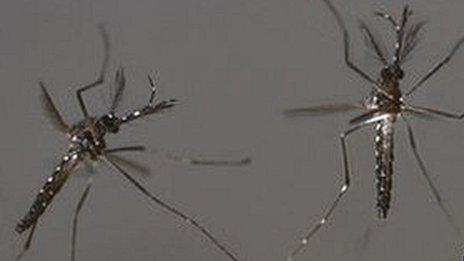Brazil faces surge in number of dengue fever cases
- Published
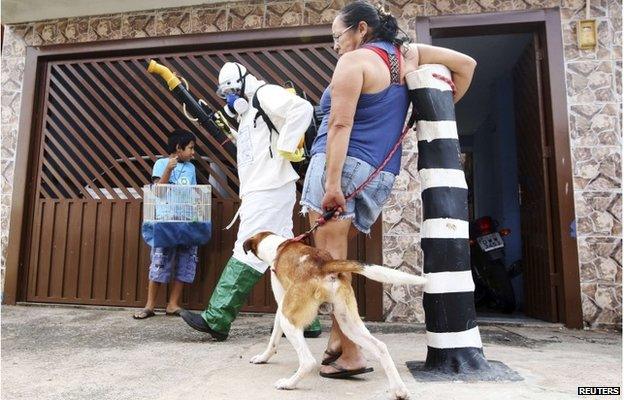
Nationwide there have been 235% more cases from January to April than last year
Brazil has registered nearly 746,000 cases of the mosquito-borne disease dengue fever this year with nine states experiencing an epidemic, the health ministry has announced.
At 368 cases per 100,000 residents it amounts to an epidemic by World Health Organisation standards, but officials say the outbreak is not nationwide.
Relaxed prevention and an increase in home water storage have been blamed.
More than half of the cases were in Sao Paulo.
The number of cases there - the most populous state - has tripled since last year.
Nationwide there have been 235% more cases than in the same period (from January to 18 April) last year.
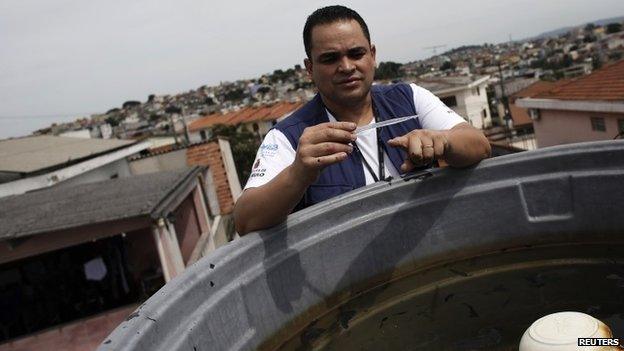
The increase in home water tanks during the drought has created more egg-laying habitants
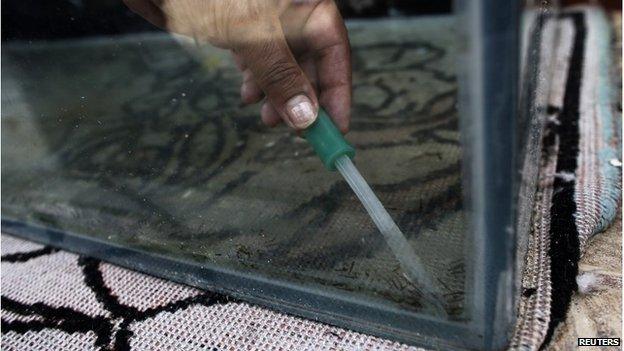
The potentially deadly virus is transmitted to humans through the bites of infected female mosquitoes
A total of 229 people have died of the disease.
Brazil has done much to counter the viral infection spread by mosquitoes which causes severe abdominal pain, vomiting and circulatory system failure.
Health Minister Arthur Chioro argued that figures for last year were exceptionally low, whereas the outbreak in 2013 had been a lot worse than now.
He said better results last year had relaxed prevention in some regions.
The BBC's Julia Carneiro in Rio de Janeiro said another factor for the rise was this year's severe drought which led to more people storing water at home.
The mosquito that carries the dengue virus breeds in containers with clear, stagnant water.
There is no vaccine against dengue, but Brazilian authorities say they are hopeful of producing one within the next year.
Scientists are also testing ways to tackle the mosquitoes' capacity to breed, says our correspondent.
In one such initiative last week, the city of Piracicaba released a first batch of up to a million mosquitoes - with a modified gene that keeps the males from reaching sexual maturity, causing the overall population to drop gradually.
Brazilian authorities believe the dengue outbreak has reached its peak as the weather is changing, becoming less favourable for the mosquitoes to spread the disease.
Dengue re-emerged in Brazil in 1981 after an absence of more than 20 years.
Over the next 30 years, seven million cases were reported.
The country reported 3.2 million cases of dengue and 800 deaths in the period 2009-2014.
- Published19 April 2015
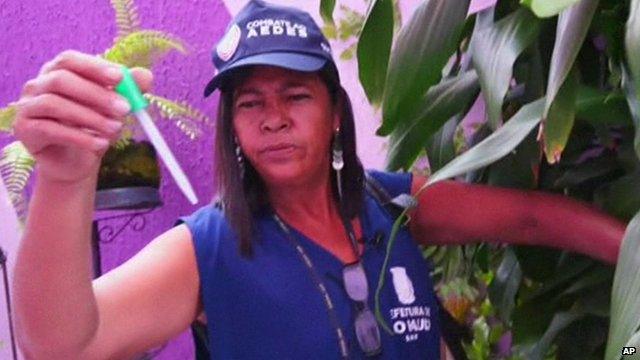
- Published24 September 2014
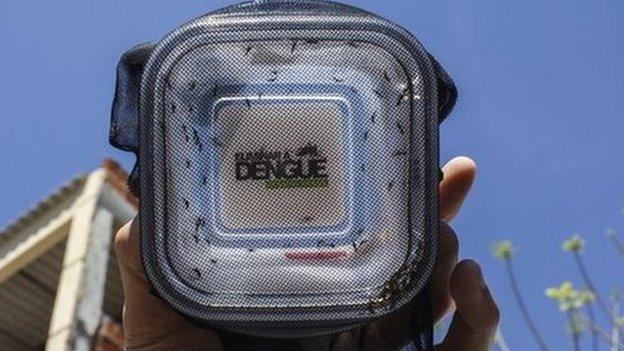
- Published26 February 2013
